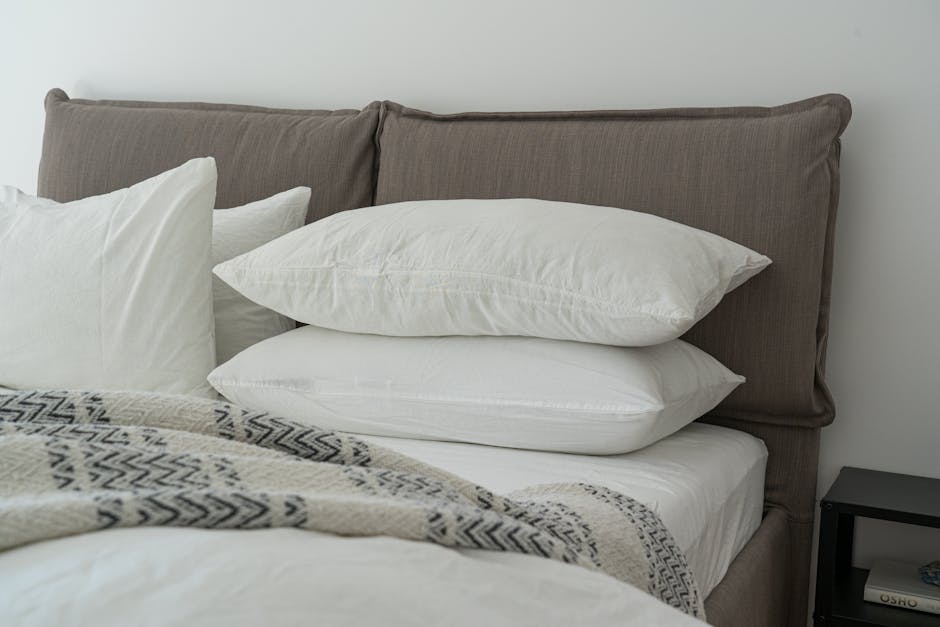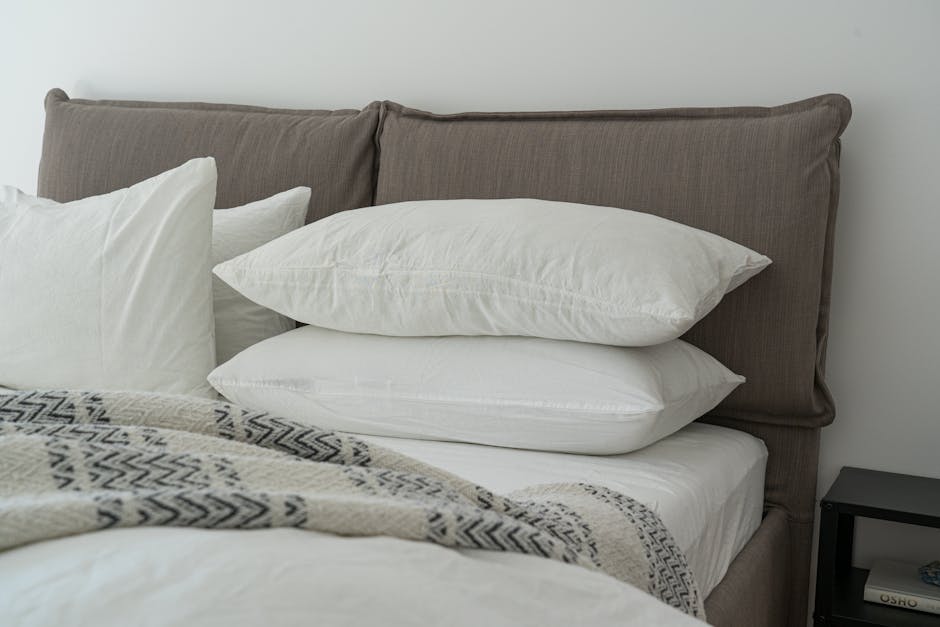
The Science Behind Breathable Pillows: How They Enhance Your Sleep Quality
Have you ever wondered why some pillows make you toss and turn, while others seem to whisk you away to dreamland? The secret could lie within the fabric of your pillow. Enter the world of *breathable pillows*—the unsung heroes of a restful night’s sleep.
What Makes a Pillow Breathable?
The concept of breathability stems from a pillow’s ability to allow air to flow through its materials. Breathable pillows, usually made from natural fibers like bamboo or advanced synthetics, facilitate air circulation, preventing moisture and heat build-up.
Materials play a pivotal role in the breathability factor. For instance, memory foam, known for its density and contouring properties, often incorporates cooling gel or is perforated to enhance airflow. This innovation addresses the material’s propensity to retain heat.
Further enhancing breathability, the weave of the pillow’s cover can also make a significant difference. Covers with a loose weave from cotton or bamboo not only feel softer against the skin but allow for optimal ventilation throughout the night.
The Impact of Breathability on Sleep Quality
A breathable pillow does more than keep you cool; it impacts your overall sleep health. By reducing overheating and sweating, it creates a more stable sleeping environment that can significantly improve sleep quality.
Temperature regulation is crucial for uninterrupted sleep cycles. A study published in the Journal of Sleep Research underscores the connection between thermal comfort and sleep efficiency, highlighting how temperature-sensitive our sleep patterns are.
Additionally, moisture-wicking properties are intrinsic to breathable pillows, preventing the growth of bacteria and allergens. This not only contributes to a cleaner sleep environment but can be particularly beneficial for those suffering from allergies or asthma.
Choosing the Right Breathable Pillow for You
Selecting the perfect breathable pillow boils down to personal preference and specific needs. Consider the pillow’s firmness, your sleeping position, and whether you have any specific health considerations, such as neck pain or allergies.
For side sleepers, a firmer, more supportive pillow may be ideal, while stomach sleepers might benefit from a softer, lower-profile option. Meanwhile, back sleepers often find medium support pillows conducive to aligning the spine naturally.
Don’t overlook the importance of trial periods offered by many manufacturers. Spending a few nights with a pillow gives you a real sense of its impact on your sleep—after all, the proof is in the sleeping.
Choosing the right pillow is more than a matter of comfort; it’s about investing in your health and well-being. Breathable pillows not only promise a cooler, more comfortable sleep but also support your journey to waking up refreshed, day after day.

